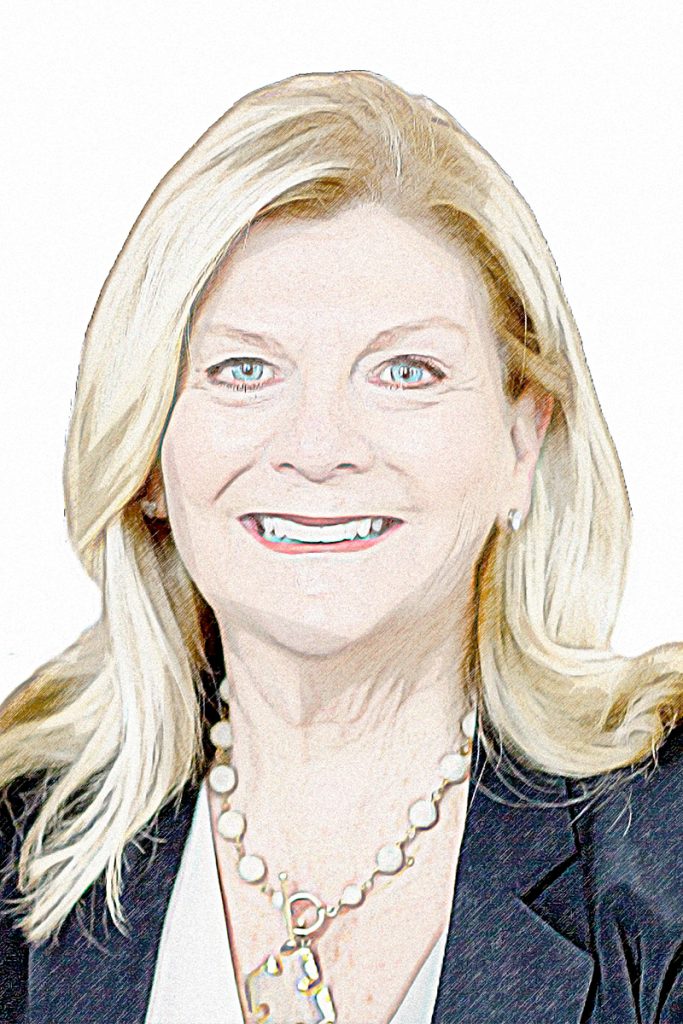Residential real estate update
Posted on June 7, 2023 By Editor Top Stories

Historic districts remain insular despite market shifts, uptick in rates
In this Part 1 of a 3-part real estate series, we look at residential sales throughout the historic districts of Jacksonville as seen through the eyes of local real estate professionals. A panel of six experts weighed in.
PANEL EXPERTS






LOCAL MARKET
Q: Is the current real estate market in the historic districts of Jacksonville a favorable one?
VINING AND COHEN: Absolutely favorable. The median sales price has been creeping up over the last few months since inventory of homes for sale has been decreasing. It’s still a strong sellers’ market. Buyers can still find the perfect home; they just need to move fast and rely on their REALTOR® to guide them carefully. In some cases, they need to make a very strong offer. We are seeing great numbers at open houses and multiple offers on properties.
SALTER: The real estate market for historic homes in Jacksonville remains dynamic, with a limited supply and a steady stream of buyers eager to invest in the timeless allure of the city’s architectural treasures.
KING: Overall, Jacksonville is slated to outperform most other metro areas of Florida for the foreseeable future. Jacksonville is positioned well for massive growth (+20%).
SINGLETON: The current real estate market is fantastic in the historic area. We have really strong demand that seems to be driven by the addition of well-paying positions in the Jacksonville job market.
SIMONETTA: Historic districts are often highly sought-after areas for buyers due to their unique charm, character and sense of history. Historic districts typically have a well-established sense of community with amenities such as local shops, restaurants and parks.
While there may be fluctuations in the real estate market in any area, historic districts often tend to hold their value well over time and can even appreciate more quickly than other areas. In part, this is because there are typically strict guidelines in place to ensure that historic properties are preserved, which can help maintain the area’s overall character and desirability.
INTEREST RATES
Q: Are current interest rates affecting the real estate market here?
SALTER: While interest rates may have a number o f buyers waiting on the sidelines, I’d say the historic market has recently seen a surge of growing interest.
KING: Yes, interest rates are a big worry for buyers, especially those who have become accustomed to below-market-value interest rates of the pandemic. The reality is that the 40-year average for mortgage rates is 7.71%. Even as I write this, rates hover at or below 7%. Buyers can sigh relief as we expect interest rates to begin declining in the coming months. Down payment programs, like Hometown Heroes and others, are making getting into a home much easier. How much depends on the overall economy, but we are confident that we have seen the ceiling and can look forward to lower rates as time progresses.
SIMONETTA: Yes, current interest rates can have a significant impact on the real estate market. When interest rates are low, it can make borrowing money to purchase a property more affordable for potential homebuyers, which can increase demand and lead to higher prices. Conversely, when interest rates are high, borrowing money to purchase a property becomes more expensive, which can decrease demand and lead to lower prices.
Low interest rates can also lead to an increase in refinancing activity, as homeowners may look to take advantage of lower rates to lower their monthly mortgage payments or shorten the term of their loan. This can also lead to an increase in demand for housing, as homeowners who refinance may use their savings to invest in additional properties or upgrade to a larger or more expensive home.
Overall, interest rates are just one factor that can influence the real estate market, but they can play a significant role in shaping supply and demand dynamics and, ultimately, affect property prices.
VINING: To some degree, yes. Some borrowers are in a vulnerable position, and when rates change, their debt-to-income ratios change. This can impact the borrower’s affordability and the type of home for which they qualify.
IN COMPARISON
Q: How are sales here in the historic districts as compared to those throughout the rest of Jacksonville?
KING: Sales in our area are a bit slower this year than in the last several years, but stable. Homes are selling, we just do not have enough inventory to meet demand. This can be attributed to overall market conditions and sellers’ unwillingness to put their homes on the market for various reasons. We can look forward to the market loosening up a bit as we progress through the fall of ’23. Homes are still selling faster than they did pre-pandemic, especially homes that have been well-kept and updated. The sellers having the most issues are overpriced and/or need to make repairs to justify their lofty prices.
SINGLETON: While some other areas seem to slow down, we are continuing to see multiple offers and homes selling above asking price.
SIMONETTA: Like any real estate market, the market in Jacksonville’s historic districts can be affected by a variety of factors, such as the overall state of the economy, changes in zoning laws or building codes, and fluctuations in supply and demand. It’s also worth noting that property values can vary greatly depending on the specific neighborhood and type of property you’re considering. In my opinion, the historical districts tend to be the last impacted in a declining market due to the public’s demand to invest their cash in a recessionary market.
VINING: The historic homes are not as plentiful as homes that are newer construction or in other neighborhoods. With limited inventory, demand continues to be high.
Real estate is local. While other markets may be seeing a slowdown, Jacksonville has been seeing a tremendous influx since Covid. With the wonderful quality of life we offer, what’s not to love? By comparison to other cities in Florida, Jacksonville’s price points remain a bargain.
SALTER: Jacksonville boasts a rich history and a diverse array of well-preserved historic properties, attracting both local residents and out-of-state buyers. These homes, often characterized by unique architectural styles and captivating stories, hold immense appeal for those seeking a blend of charm, character and timeless beauty.
As the market continues to experience demand due to a major lack in inventory, prices for homes in Riverside and Avondale, specifically, have steadily increased, reflecting their desirability and scarcity. Buyers are drawn to the distinctive features such as original hardwood floors, intricate moldings and ornate façades, which contribute to the allure of owning a piece of our city’s past but are also shopping for homes that are more “move-in ready” and well-maintained versus ones that may be more of a project.
Additionally, the city’s ongoing efforts to preserve its historical heritage and revitalize historic districts have further fueled the interest. The real estate market for historic homes in Jacksonville remains dynamic, with a limited supply and a steady stream of buyers eager to invest in the timeless allure of the city’s architectural treasures.
SCHOOL TREND
Q: With the school term coming to a close, are you seeing/expecting more movement in local real estate, as is the usual trend?
SIMONETTA: Historically, the end of a school term can be a time of increased real estate activity, particularly for families with school-aged children who may be looking to move before the start of the next school year. This can create a surge in demand for homes in certain areas, which may lead to increased buying and selling activity.
However, it’s important to note that real estate activity can be influenced by a wide range of factors, including economic conditions, interest rates, housing inventory and local market dynamics, among others. Therefore, the level of real estate activity at the end of the school term may vary depending on these and other factors.
This year, due to the higher interest rates and home prices, which have not adjusted as fast, I expect to see a slower pace than the usual trend. You also must remember that many homeowners have current mortgages on their existing homes under 3%. It would take something special for them to sell and purchase a property at a rate easily doubling their current mortgage.
VINING: It’s always busy. Northeast Florida is in a major growth mode, and we continue to attract businesses and great jobs. There are always a few extra moves when kids are out of school. Competition rises slightly, but it’s already a competitive market. We just keep moving forward, creating the best experience for clients.
KING: We are currently in the middle of our hot spring market. Before the middle of June, we see sellers earn the best returns of the calendar year, and this year is no exception, especially while demand and supply are offset in sellers’ favor.
THE FUTURE
Q: What is your best guess as to what we can expect in the near future? Distant future?
KING: We can expect to see interest rates stabilize and begin declining very soon and throughout the remainder of the year. In the near term, we expect to see interest rates come down while prices stabilize and probably inch back up. Today, we are still at half or less of the number of homes available for sale in Northeast Florida compared to before the pandemic. In the future, Jacksonville is positioned to become the power player it has always strived to be.
Jacksonville is the largest land mass city in the U.S. We have excellent rail and road transportation systems, we have a top-five freshwater port, and an international airport. We have multiple military installations, not including the Coast Guard, and let’s toss in a roughly 30-minute or less drive to the beaches. We have all the pieces, and now, all of those pieces appear to be falling into place.
VINING: As long as people continue to relocate to our area, demand will be high. Currently, many in the local market would like to move, but with rising prices and outside demand, it is hard for locals, as there aren’t as many choices or opportunities to move up or down in their communities.
SIMONETTA: The bottom line is: We are in unprecedented times. Throughout history, one thing is for sure. No matter what the rates or prices were, deals have always been done. The key is to produce a fair deal for all parties no matter what the circumstances are.
IMPENDING SLOWDOWN?
Q: Do you see a slowdown coming?
COHEN: I believe Northeast Florida really has that special sauce. We have the largest urban park system in the country, beautiful beaches, a high quality of life with excellent healthcare facilities, schools and a low cost of living. All that, combined with our diverse economy, makes Jacksonville an attractive place for business and job opportunities. Markets have ups and downs; the best REALTORS® and brokers thrive in any market condition.
VINING: The first quarter [of] 2023 has been very strong in Jacksonville. As more locals find desirable places to move within the city, and their homes sell, our market will keep moving upward.
SALTER: I do not foresee a downturn in the market. I think Florida as a whole is still very hot. And Jacksonville remains affordable as compared to other major cities in our state, so we are seeing people flock from more expensive and populated markets within Florida and make the move as well as transplants from across the country. I’ve heard so often that our historic neighborhoods remind northerners of where they live, and I think finding that relatability has made our area so appealing to people shopping for a place to move here.
KING: I do not see much of a real estate slowdown from here. I see sales numbers stabilizing and reminiscing of 2018-2019 regarding volume, with our current prices sticking and even slight increases in pricing as interest rate pressures decline.
AVAILABLE INVENTORY
Q: What type of inventory and in what quantity is available in the historic districts now?
VINING: In Avondale and Riverside, there are currently 84 single-family homes for sale. Of the 84 for sale, 53 are currently under contract. There are 31 active listings, ranging in price from $159,900 to $2.9 million.
KING: Our current inventory levels are still well below where they were pre-pandemic, while buyer demand is much higher. Average days on the market pre-pandemic were over 100 days, and today they’re around 47. So, the limited numbers of homes on the market are moving quite well. Again, buyers are forced to be a bit more conservative in their home choices.
COHEN: The latest NEFAR market statistics show 2.6 months of supply. That’s low and evidence of a super sellers’ market. The median sales price is up 13% month over month. Year-over-year stats shows prices are down; low supply is driving prices back up. Transactional dynamics have moderated, and sellers are more likely to negotiate and make repairs. With such low supply, sellers considering putting their homes on the market should act fast. Competition gets thicker in the summer months.
CHOOSING AN AGENT
Q: Our readers expressed that they have chosen or will choose agents they see advertised in “The Resident.” What other criteria should people look for in an agent?
VINING: An experienced REALTOR® who has knowledge of the market in which the buyer is seeking a home. Also, an established real estate company offering up-to-date technology. With our current fast-paced market, an experienced REALTOR® should be able to provide creative suggestions for making an offer.
For someone selling a home, an experienced and successful REALTOR® who knows how to market and price a property and has the ability to spend marketing dollars to reach the seller’s true target market.
COHEN: Trust, integrity, longevity and respect. Your REALTOR® should be knowledgeable and dynamic in their marketing efforts. Does the REALTOR® apply social media, video, print marketing and continuous networking with other agents and brokers? Make sure your REALTOR® has support and is involved in the business culture. The collective group they are part of is important.
KING: Picking your agent, above all else, should not be out of nepotism. Interview an agent just like you would any potential new hire. Yes, it is important to have a good relationship with your agent. Still, at the end of the day, our job is to market your home aggressively, provide the customer/client with excellent advice (even if they do not want to hear it), and to be a consummate professional. Your agent should have a good track record of closings and be very well-versed in selling historic properties. 100-year-old homes are a very different world than newer homes.
SIMONETTA: In addition to experience and knowledge of the local market, there are several other criteria to consider when choosing a real estate agent.
Communication skills: An excellent real estate agent should have good communication skills, which include listening actively, being responsive and explaining things clearly.
Professionalism: It’s important to work with an agent who is professional, courteous and respectful. A professional agent should always keep their promises, meet deadlines and keep their clients informed throughout the buying or selling process.
Trustworthiness: Look for an agent who is honest and transparent with you. You want to work with someone who has your best interests in mind and is committed to helping you achieve your goals.
Marketing strategies: An effective agent should have a strong marketing strategy to help you sell your home quickly and at the best possible price. Ask the agent about their marketing plan, including their online presence, advertising and open house events.
Negotiation skills: A skilled agent should be able to negotiate on your behalf to get you the best possible deal. Look for an agent who has experience negotiating with other agents, buyers and sellers.
Availability: You want an agent who is available when you need them, whether it’s during the day, evening or on weekends. Make sure the agent you choose is willing to work around your schedule and is responsive to your needs.
Network: A good agent should have a strong network of industry professionals, including lenders, home inspectors and contractors. This can help make the buying or selling process smoother and more efficient.
By considering these factors when choosing a real estate agent, you can ensure that you find someone who is knowledgeable, professional and committed to helping you achieve your real estate goals.
LISTING ADVICE
Q: What are your top tips for listing a home?
SINGLETON: The most important advice for sellers is using professional marketing and pricing the home accurately. We continue to see some listings languish because they’re simply not presented in the best manner.
SALTER: When listing a home in today’s market, you must understand the current buyer’s mindset. People are definitely more hesitant because of the financial markets, and buyers now want to feel like the home they buy is worth the money they are spending because home prices accelerated so quickly over the last few years. We aren’t just making offers on anything anymore. A listing needs to have a strong pricing strategy combined with professional marketing. If you feel like your home needs some touchups before going on the market, it likely does. Don’t wait until the buyer does an inspection to figure it out. Be proactive.
VINING: Decluttering is at the top of the list. Less is best. Depersonalizing the home so buyers can visualize themselves in the property versus seeing family photos, trophies, degrees and/or personal items.
COHEN: Curb appeal is critical: laying fresh mulch, landscaping, pressure washing hardscapes. Sprucing up the landscaping and outside improves curb appeal and the potential buyer’s first impression. Also important are decluttering and depersonalizing the home so buyers can visualize themselves in the property and take emotional possession of the space.
KING: Work closely with your agent and try hard not to pre-decide what your home is worth before consulting your licensed and experienced REALTOR®. Consider performing a pre-market home inspection and address needed repairs before you list.
By Mary Wanser
Resident Community News




 (1 votes, average: 5.00 out of 5)
(1 votes, average: 5.00 out of 5)Anita Vining, Erin King, Jon Singleton, Josh Cohen, Nick Salter, Philip Simonetta, Real Estate





